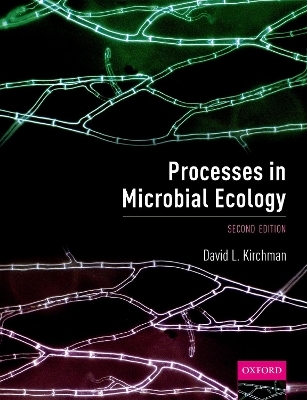
Processes in Microbial Ecology
Oxford University Press (Verlag)
978-0-19-878941-3 (ISBN)
Microbial ecology is the study of interactions among microbes in natural environments and their roles in biogeochemical cycles, food web dynamics, and the evolution of life. Microbes are the most numerous organisms in the biosphere and mediate many critical reactions in elemental cycles and biogeochemical reactions. Because they are essential players in the carbon cycle and related processes, microbial ecology is a vital science for understanding the role of the biosphere in global warming and the response of natural ecosystems to climate change.
This second edition has been fully revised, restructured, and updated while remaining concise and accessible. It discusses the major processes carried out by viruses, bacteria, fungi, protozoa and other protists - the microbes - in freshwater, marine, and terrestrial ecosystems. The focus is on biogeochemical processes, starting with primary production and the initial fixation of carbon into cellular biomass, before exploring how that carbon is degraded in both oxygen-rich (oxic) and oxygen-deficient (anoxic) environments. These processes are in turn affected by ecological interactions, including competition for limiting nutrients, viral lysis, and predation by various protists in soils and aquatic habitats. The book neatly connects processes occurring at the micron scale to events happening at the global scale, including the carbon cycle and its connection to climate change issues. A final chapter is devoted to symbiosis and other relationships between microbes and larger organisms. Microbes have huge impacts not only on biogeochemical cycles, but also on the ecology and evolution of more complex forms of life, including humans.
Professor David L. Kirchman is the Maxwell P. & Mildred H. Harrington Professor of Marine Biosciences at the University of Delaware. He obtained his Ph.D. from Harvard University in 1982 before joining the faculty at the University of Delaware in 1986. He has written over 220 articles in peer-reviewed journals, was Editor of Limnology and Oceanography for 5 years, and has served on the editorial boards of another eight journals. He was elected to the American Academy of Microbiology in 2008 and as an ASLO fellow in 2015.
Preface
1: Introduction
2: Elements, biochemicals, and structures of microbes
3: The physical-chemical environment of microbes
4: Community structure of microbes in natural environments
5: Genomes and meta-omics for microbes
6: Microbial primary production and phototrophy
7: Degradation of organic matter
8: Microbial growth, biomass production, and controls
9: Predation and protists
10: The ecology of viruses
11: Processes in anoxic environments
12: The nitrogen cycle
13: Introduction to geomicrobiology
14: Symbioses and microbes
References
Index
| Erscheinungsdatum | 14.08.2018 |
|---|---|
| Zusatzinfo | Over 240 illustrations |
| Verlagsort | Oxford |
| Sprache | englisch |
| Maße | 189 x 246 mm |
| Gewicht | 704 g |
| Themenwelt | Naturwissenschaften ► Biologie ► Mikrobiologie / Immunologie |
| Naturwissenschaften ► Biologie ► Ökologie / Naturschutz | |
| Naturwissenschaften ► Biologie ► Zoologie | |
| ISBN-10 | 0-19-878941-6 / 0198789416 |
| ISBN-13 | 978-0-19-878941-3 / 9780198789413 |
| Zustand | Neuware |
| Haben Sie eine Frage zum Produkt? |
aus dem Bereich


